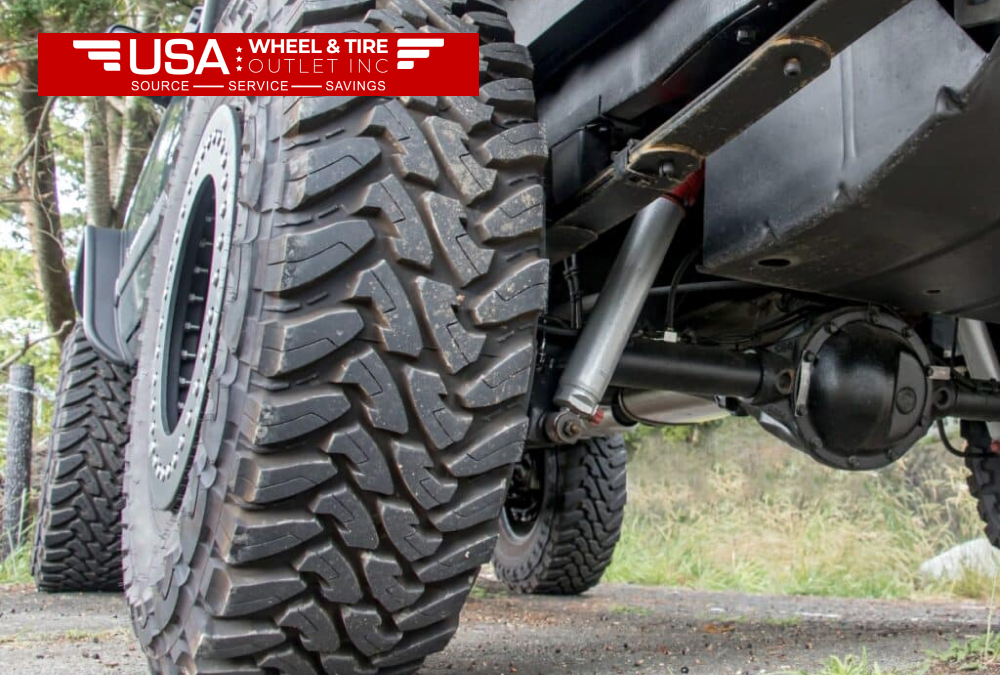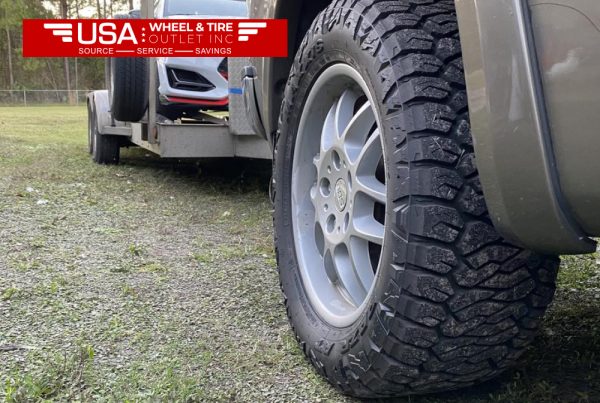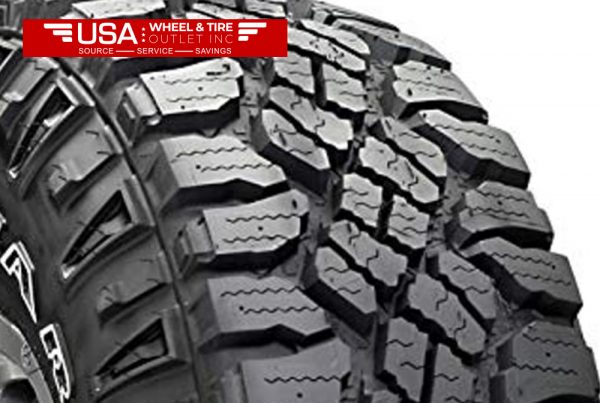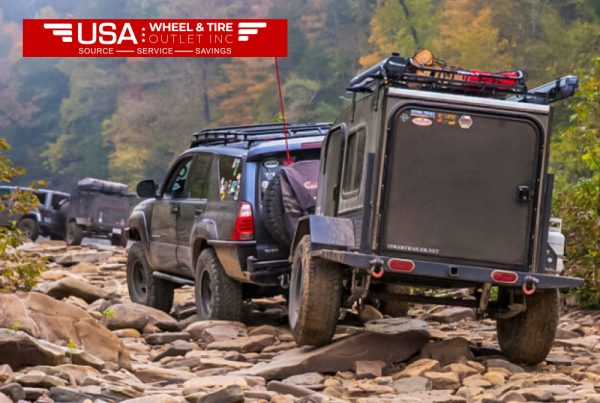When it comes to towing the dimensions and quality of your trailer tire will influence the security, stability, and effectiveness of your setup for towing. Probably a very crucial thing to consider is the tire height which may significantly determine the movement mode of your trailer when moving. If you’re carrying cargo like camping equipment or even a boat, understanding the importance of the size of your trailer’s tires will help you in making the best decisions when choosing the tires that will match your vehicle.
This article will look at the details of trailer tire sizes, the relationship between the height and width of the tire, and how these variables impact a trailer’s stability.
What Is Trailer Tire Height?
The dimensions of a tire that is on the trailer are the size of that tire from the edge of the tread down up to its ground. It’s an important measurement because the higher the tire, the worse your ride will be, making your truck have a harder time to hold when towing. The space between your car with the roadway is also affected by the elevation of the tire among the other components. It also determines your weight distribution as well as your ability to carry load.
The size of the tire you are using on your trailer will be included in the size of the tire. For example, if you see the size of a tire stated as ST205/75R15, the “75” is the aspect ratio, which is the ratio of the height of the tire to its width. “15” is the diameter of the tire “15” is the diameter of the tire in inches.
The Aspect Ratio and the Height of the Tire Compared to its Width
If you are looking for trailer tires, the sizes of the tires are usually represented as a set of numbers such as ST225/75R15, and ST205/75R15. These numbers are very essential to know about the height, and width of the tire.
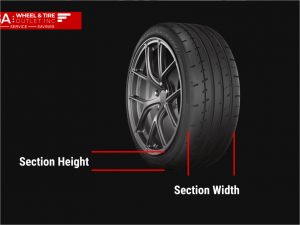
Height: This is the total measurement from the top of the tire to the lowest.
Width: The length from the end of the tire to the opposite or reverse, measured from the largest part on the tread.
Aspect Ratio: This is the ratio of the sidewall height of the tire (from an rim down to its tread) to its width. For example, 75 aspect ratio means that the width of the sidewall corresponds to 75 per cent of the overall width of the tire.
Tire width and height are interrelated but they impact your setup for towing in many ways.
The Height of the Tire Vs Wide Tire: Which is more important to towing?
The tire’s height and. broadness is a vital aspect to take into consideration when selecting the appropriate tires for your vehicle. Both dimensions play a crucial aspect in the tire’s capacity to transport loads and handle as well as efficiency in fuel use.
The height of the tire Tire Height: High-quality tires will make the trailer’s wheels more raised and good for towing on rough and uneven ground. Tires that are more raised will improve the performance of your trip by absorbing more bumps than the road.
Wide tire: Tires will likely provide greater stability because of their greater contact with the ground. Wider tires can spread over the load of a trailer in a more uniform manner which can improve stabilization when towing. However, they might have the potential to decrease the efficiency of fuel due to the greater resistance to roll.
The height of the tire will influence the width of your trailer and the comfort of your ride, but tire width is much more important for stable operation of your truck and the distribution of the load. A good combination of both dimensions will assure that your truck performs efficiently when towing.
How Trailer Tire Height Affects Towing Stability
The size of the tire on your trailer may have a direct effect on the strength of your trailer. Here’s how:
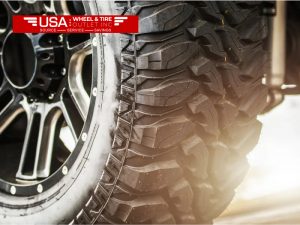
1. Ground Clearance
The most obvious way that size of your tires can affect towing is the clearance to the ground you have in your car. The greater the height of your tire, the greater space between the undercarriage and trailer and the road roadway’s surface. This is particularly good when towing over rough roads or has gravel and also at obstacles such as curbs or rocks. In the event of frequent pulling off of the road, and in areas of debris, your safety will be enhanced by a larger tire.
2. Ride Comfort and Smoothness
Larger tires absorb the imperfections of the road much better, making for a better ride. Larger tires tend to be more effective in absorbing bumps and are thus generally more efficient at providing an easier towing experience. This is particularly true when towing a trailer for long distances, or over rough roads. The smaller size of tires can also make for bumpy travel, which can cause additional road vibrations to be transferred to your trailer and the vehicle towing it.
3. Tire Wear and Longevity
In Accord with USA Wheels Tires, The height of the tires on your trailer can determine how they wear out. The taller tires in height will last longer since they distribute the weight and pressure evenly. However, when tires are too narrow for the load they are carrying, they tend to wear out faster and unevenly, especially when they carry too much weight. To be able to have a smooth tow and longevity in the tire, make sure that the width of the tire is adequate to the weight of the trailer.
4. Mobility
The larger tires can change the geometry of the trailer that is being weighed. In certain cases, larger tires could change the way that the trailer behaves when it is in sharp turns or when traveling at slower speeds. This may impact the speed of moving the trailer around tight spots. If it is larger than the width of the truck, it could cause oversteering, or lower the response time.
5. Load Capacity
The bigger tires mostly have a higher load rating so that they are suitable for trailers that have huge capacities. If you are normally towing a vehicle that is typically full to capacity, using better-quality tires can mean greater protection and durability for your tires. Be sure to check your tire capacity and ensure it is appropriately aligned with the weight of the trailer.
6. Towing Speed
The elevation of the tire may cause a difference in your speed of towing and even the fuel efficiency. High-profiled tires may push the wheel to cover total distance with each turn so that the car engine has to work extra to maintain speed. In this way, it impacts the efficiency while towing concerning energy usage, but a smaller tire could make a vehicle accelerate faster and therefore reduce its towing effectiveness.
Conclusion
The height of your tires on your trailer and how this will affect towing is a matter of great importance in offering a safe, smooth and safe towing experience. Getting the right size of tires and maintaining the height of the tires on your trailer means that you are going to improve the safety of towing as well as comfortability on the road as well as overall effectiveness. Determine, therefore, the type of vehicle you’re using and sort of roads you’ll cover, as well as how much capacity your load bears, before you decide the use of tires.
With the proper tire size and regular routine and routine maintenance, you can be certain that your trailer is up for whatever road or terrain you might have. You are either a pleasure tow or a business tow. Ensuring that you keep the tires of your trailer in top condition will aid in having a great towing experience.
Read Also: What Does the ‘Service Tire Monitor System’ Warning Light Mean?
Frequently Asked Questions (FAQs)
1. What is the effect of elevating a tire on a trailer to its towing stability?
The large tires on the trailers raise the ground clearance, therefore, increasing the comfort and stability, especially in rough terrain.
2. What are the differences in the trailer’s tire’s width as opposed to the height?
The height of the tires can also determine clearance and the quality of the ride. Similarly, the width of the tires will determine your vehicle’s stability as well as the load distribution. Both are essential for secure towing.
3. Do I need to use the same tire as my vehicle?
It is not necessary to select an appropriate size of tire with regard to the trailer’s tow and load-carrying capacity. demands. The manufacturer’s instructions should be followed.
4. How can I determine if my truck’s tires are the correct dimension?
Look at the manufacturer’s label on the trailer for specifications of the tires or check the owner’s manual for the right size and height of the tire.
5. Are larger trailer tires advantageous to towing performance?
Yes, a tire with more profile provides better clearance, and reduces the chances that a trailer is dragging or scraping on the road surface; therefore, it is towed more smoothly and securely.
6. Do improperly sized tires on a trailer cause problems?
A tires that is not of an appropriate size can affect handling, stability, and clearance; thereby putting towing into potentially hazardous situations.
7. What’s the best time to inspect the tires of my truck?
Inspect your trailer tires often so you know they’re getting even tension wear and so you can identify signs of wear. Make sure to make an extensive inspection before you go on long journeys.
8. Does a trailer tire size impact trailer tire sizes?
Indeed, larger tires would result in better stability and distribution of loads, but they could diminish fuel efficiency due to increased resistance to roll.

